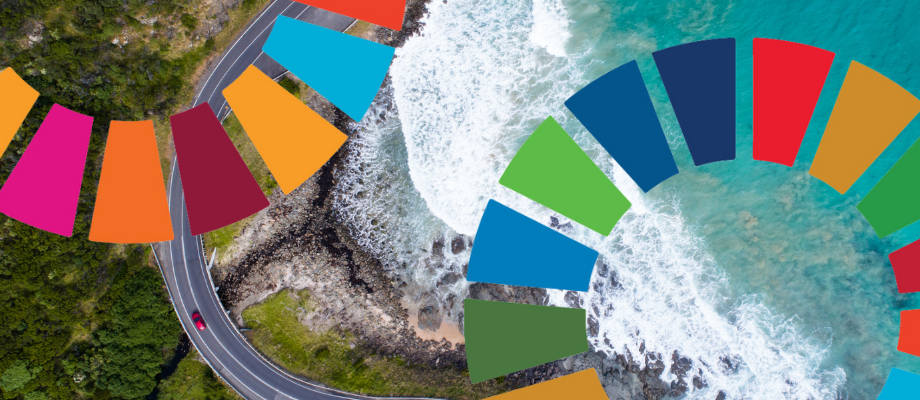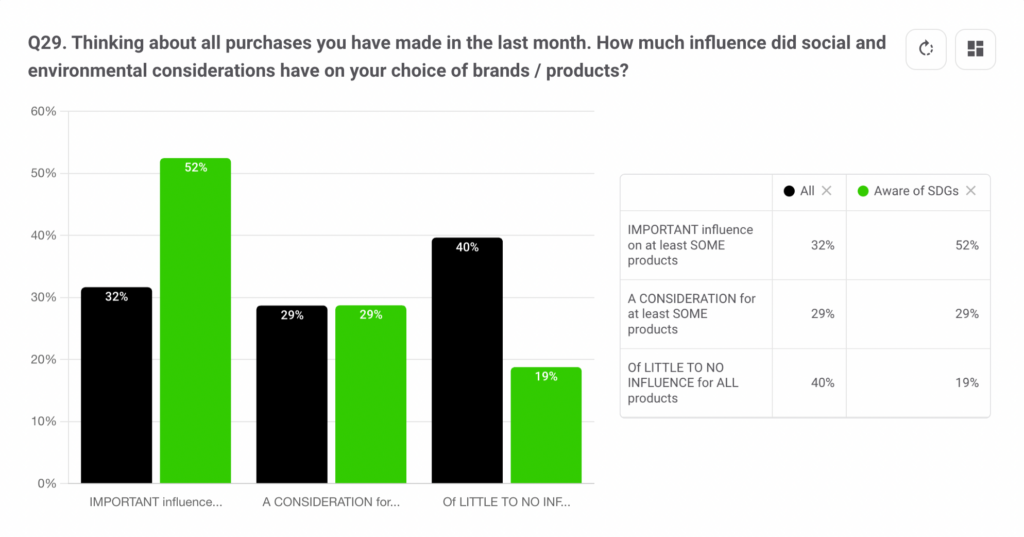“The world is getting a failing grade” stated UN Secretary-General António Guterres when launching the 2024 Sustainable Development Goals Report Card in June this year.
With only 17% of goals on track for 2030 targets, the situation is dire. He stressed, “We must accelerate action for the Sustainable Development Goals, and we don’t have a moment to lose”.
Action starts with understanding and it is clear that meaningful progress is being hindered by the lack of a common understanding of how to take action.
The United Nations’ Sustainable Development Goals (SDGs) were established to provide a universal framework that outlines what sustainable progress looks like and how we can achieve it. However, a significant gap in public understanding of the SDGs obstructs the alignment necessary among governments, businesses, and citizens to drive real change.
The knowledge gap.
Recent survey data from Glow (glowfeed.com) reveals a startling disconnect that underscores this issue. While 86% of people agree that it is essential for businesses to act responsibly toward society and the environment, only 19% of Australian adults have even heard of the SDGs. Awareness is slightly higher among younger, male, and more affluent demographics, but overall, it remains critically low.
This lack of awareness translates into a fragmented understanding of sustainable progress. Even among those who are aware of the SDGs, knowledge is limited. Of the 19% who recognise the SDGs, only one in five has more than a superficial understanding of them. This awareness declines sharply with age, with those over 45 being much less likely to be familiar with the SDGs than younger adults. Additionally, men are more likely to claim awareness of the SDGs (23%) than women (14%).
Awareness aligns with action.
Awareness is essential because it is correlated with action. Citizens who are aware of the SDGs claim to have recently switched brands (last 3 months) due to social or environmental considerations at 2.5 times the rate of those who are not aware of the SDGs.
Furthermore, SDG-aware citizens are much more likely to cite sustainability as a significant influence on recent purchases – 1 in 2 versus 1 in 3 for all adults.
Whether cause or effect, these stats highlight that awareness and action are intrinsically linked.
Measuring progress requires a shared language.
The SDGs were designed to be a common language—a set of global benchmarks that everyone, from governments and businesses to individuals, can use to measure and align their efforts. Without a widespread understanding of these goals, it becomes challenging to coordinate actions, set priorities, and measure progress in a way that is consistent and meaningful.
This lack of a shared language creates silos, where different groups work toward sustainability in isolated or even contradictory ways. It also weakens the pressure citizens can exert on businesses and governments, as there is no common framework to hold these entities accountable.
When prompted with the SDGs and asked which goals matter most to them, clear and consistent priorities emerge. In Australia, Clean Water and Sanitation (29%), No Poverty (31%), and Good Health and Well-being (30%) are among the top concerns. These priorities offer a blueprint for where collective action should focus, but only if the language of the SDGs is widely understood and adopted.
Bridging the language gap for sustainable progress.
The survey data from Glow highlights the urgent need to raise public awareness and understanding of the SDGs. By adopting the SDGs as a shared language, we can create a unified approach to sustainability that aligns the efforts of citizens, businesses, and governments. This alignment is crucial not only for driving meaningful action but also for measuring progress in a way that is transparent and accountable.
The SDGs offer more than just a set of goals; they provide a common language that is essential for coordinating our efforts to achieve sustainable change. Without widespread understanding and adoption of this language, we risk fragmenting our efforts and diminishing our impact. To move forward faster, we must ensure everyone speaks the same language about sustainability.
Learn more about the UN’s SDGs here and see case studies of Australian businesses addressing these goals via The Banksia Foundation Awards.
To learn more about how Glow’s sustainability research products can help your business turn sustainable action into commercial advantage, click here.
Written by:

Mike Johnston
Managing Director, Data Products at Glow

